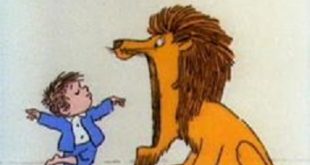Verb: plod
Pronunciation:(plód)
Plod meaning:
- Walk heavily and firmly, as when weary, or through mud
Synonyms: slog, footslog, trudge, pad, tramp, tromp

Noun: plod
Pronunciation:(plód)
Plod meaning:
- The act of walking with a slow heavy gait
Synonyms: plodding
- [Brit, informal] A member of a police force
Synonyms: policeman, police officer, officer, bobby
Derived forms: plodded, plods, plodding
Quotations:
- Sylvia Plath – I do not love; I do not love anybody except myself. That is a rather shocking thing to admit. I have none of the selfless love of my mother. I have none of the plodding, practical love. I am, to be blunt and concise, in love only with myself, my puny being with its small inadequate breasts and meager, thin talents. I am capable of affection for those who reflect my own world.
- T.H. White – Life is such unutterable hell, solely because it is sometimes beautiful. If we could only be miserable all the time, if there could be no such things as love or beauty or faith or hope, if I could be absolutely certain that my love would never be returned: how much more simple life would be. One could plod through the Siberian salt mines of existence without being bothered about happiness. Unfortunately the happiness is there. There is always the chance (about eight hundred and fifty to one) that another heart will come to mine. I can’t help hoping, and keeping faith, and loving beauty. Quite frequently I am not so miserable as it would be wise to be.
- Donna Tartt – But depression wasn’t the word. This was a plunge encompassing sorrow and revulsion far beyond the personal: a sick, drenching nausea at all humanity and human endeavor from the dawn of time. The writhing loathsomeness of the biological order. Old age, sickness, death. No escape for anyone. Even the beautiful ones were like soft fruit about to spoil. And yet somehow people still kept fucking and breeding and popping out new fodder for the grave, producing more and more new beings to suffer like this was some kind of redemptive, or good, or even somehow morally admirable thing: dragging more innocent creatures into the lose-lose game. Squirming babies and plodding, complacent, hormone-drugged moms. Oh, isn’t he cute? Kids shouting and skidding in the playground with no idea what future hell await them: boring jobs and ruinous mortgages and bad marriages and hair loss and hip replacements and lonely cups of coffee in an empty house and a colostomy bag at the hospital. Most people seemed satisfied with the thin decorative glaze and the artful stage lighting that sometimes, made the bedrock atrocity of the human predicament look somewhat more mysterious or less abhorrent. People gambled and golfed and planted gardens and traded stocks and had sex and bought new cars and practiced yoga and worked and prayed and redecorated their homes and got worked up over the news and fussed over their children and gossiped about their neighbors and pored over restaurant reviews and founded charitable organizations and supported political candidates and attended the U.S. Open and dined and traveled and distracted themselves with all kinds of gadgets and devices, flooding themselves incessantly with information and texts and communication and entertainment from every direction to try to make themselves forget it: where we were, what we were. But in a strong light there was no good spin you could put on it. It was rotten from top to bottom.
- Bill Bryson – Distance changes utterly when you take the world on foot. A mile becomes a long way, two miles literally considerable, ten miles whopping, fifty miles at the very limits of conception. The world, you realize, is enormous in a way that only you and a small community of fellow hikers know. Planetary scale is your little secret.Life takes on a neat simplicity, too. Time ceases to have any meaning. When it is dark, you go to bed, and when it is light again you get up, and everything in between is just in between. It’s quite wonderful, really.You have no engagements, commitments, obligations, or duties; no special ambitions and only the smallest, least complicated of wants; you exist in a tranquil tedium, serenely beyond the reach of exasperation, “far removed from the seats of strife,” as the early explorer and botanist William Bartram put it. All that is required of you is a willingness to trudge.There is no point in hurrying because you are not actually going anywhere. However far or long you plod, you are always in the same place: in the woods. It’s where you were yesterday, where you will be tomorrow. The woods is one boundless singularity. Every bend in the path presents a prospect indistinguishable from every other, every glimpse into the trees the same tangled mass. For all you know, your route could describe a very large, pointless circle. In a way, it would hardly matter.At times, you become almost certain that you slabbed this hillside three days ago, crossed this stream yesterday, clambered over this fallen tree at least twice today already. But most of the time you don’t think. No point. Instead, you exist in a kind of mobile Zen mode, your brain like a balloon tethered with string, accompanying but not actually part of the body below. Walking for hours and miles becomes as automatic, as unremarkable, as breathing. At the end of the day you don’t think, “Hey, I did sixteen miles today,” any more than you think, “Hey, I took eight-thousand breaths today.” It’s just what you do.
- Rick Riordan – Our camels plodded along. Katrina tried to kiss, or possibly spit on Hindenburg, and Hindenburg farted in response. I found this a depressing commentary on boy-girl relationships.
- Richard Matheson – We’ve forgotten much. How to struggle, how to rise to dizzy heights and sink to unparalleled depths. We no longer aspire to anything. Even the finer shades of despair are lost to us. We’ve ceased to be runners. We plod from structure to conveyance to employment and back again. We live within the boundaries that science has determined for us. The measuring stick is short and sweet. The full gamut of life is a brief, shadowy continuum that runs from gray to more gray. The rainbow is bleached. We hardly know how to doubt anymore.
- Hanya Yanagihara – Everyone thought they would be friends for decades, forever. But for most people, of course, that hadn’t happened. As you got older, you realized that the qualities you valued in the people you slept with or dated weren’t necessarily the ones you wanted to live with, or be with, or plod through your days with. If you were smart, and if you were lucky, you learned this and accepted this. You figured out what was most important to you and you looked for it, and you learned to be realistic.
- Mikhail Naimy – Often you shall think your road impassable, somber and companion less. Have will and plod along; and round each curve you shall find a new companion.
- Jon Ronson – A life had been ruined. What was it for: just some social media drama? I think our natural disposition as humans is to plod along until we get old and stop. But with social media, we’ve created a stage for constant artificial high drama. Every day a new person emerges as a magnificent hero or a sickening villain. It’s all very sweeping, and not the way we actually are as people.
Sample sentences:
- If you imagine the 4,500 billion odd years of Earth’s history compressed into a normal earthly day, then life begins very early, about 4 A.M., with the rise of the first simple, single-celled organisms, but then advances no further for the next sixteen hours. Not until almost 8:30 in the evening, with the day five-sixths over, has Earth anything to show the universe but a restless skin of microbes. Then, finally, the first sea plants appear, followed twenty minutes later by the first jellyfish and the enigmatic Ediacaran fauna first seen by Reginald Sprigg in Australia. At 9:04 P.M. trilobites swim onto the scene, followed more or less immediately by the shapely creatures of the Burgess Shale. Just before 10 P.M. plants begin to pop up on the land. Soon after, with less than two hours left in the day, the first land creatures follow. Thanks to ten minutes or so of balmy weather, by 10:24 the Earth is covered in the great carboniferous forests whose residues give us all our coal, and the first winged insects are evident. Dinosaurs plod onto the scene just before 11 P.M. and hold sway for about three-quarters of an hour. At twenty-one minutes to midnight they vanish and the age of mammals begins. Humans emerge one minute and seventeen seconds before midnight. The whole of our recorded history, on this scale, would be no more than a few seconds, a single human lifetime barely an instant. Throughout this greatly speeded-up day continents slide about and bang together at a clip that seems positively reckless. Mountains rise and melt away, ocean basins come and go, ice sheets advance and withdraw. And throughout the whole, about three times every minute, somewhere on the planet there is a flash-bulb pop of light marking the impact of a Manson-sized meteor or one even larger. It’s a wonder that anything at all can survive in such a pummeled and unsettled environment. In fact, not many things do for long.
- I fell in love with books. Some people find beauty in music, some in painting, some in landscape, but I find it in words. By beauty, I mean the feeling you have suddenly glimpsed another world, or looked into a portal that reveals a kind of magic or romance out of which the world has been constructed, a feeling there is something more than the mundane, and a reason for our plodding.
- We find that at present the human race is divided into one wise man, nine knaves, and ninety fools out of every hundred. That is, by an optimistic observer. The nine knaves assemble themselves under the banner of the most knavish among them, and become ‘politicians’; the wise man stands out, because he knows himself to be hopelessly outnumbered, and devotes himself to poetry, mathematics, or philosophy; while the ninety fools plod off under the banners of the nine villains, according to fancy, into the labyrinths of chicanery, malice and warfare. It is pleasant to have command, observes Sancho Panza, even over a flock of sheep, and that is why the politicians raise their banners. It is, moreover, the same thing for the sheep whatever the banner. If it is democracy, then the nine knaves will become members of parliament; if fascism, they will become party leaders; if communism, commissars. Nothing will be different, except the name. The fools will be still fools, the knaves still leaders, the results still exploitation. As for the wise man, his lot will be much the same under any ideology. Under democracy he will be encouraged to starve to death in a garret, under fascism he will be put in a concentration camp, under communism he will be liquidated.
- Hope is the denial of reality. It is the carrot dangled before the draft horse to keep him plodding along in a vain attempt to reach it.” “Are you saying we shouldn’t hope?””I’m saying we should remove the carrot and walk forward with our eyes open!
- Life is such unutterable hell, solely because it is sometimes beautiful. If we could only be miserable all the time, if there could be no such things as love or beauty or faith or hope, if I could be absolutely certain that my love would never be returned: how much more simple life would be. One could plod through the Siberian salt mines of existence without being bothered about happiness.
- From daydreams on the road there was no waking. He plodded on. He could remember everything of her save her scent. Seated in a theater with her beside him leaning forward listening to the music. Gold scroll work and sconces and the tall columnar folds of the drapes at either side of the stage. She held his hand in her lap and he could feel the tops of her stockings through the thin stuff of her summer dress. Freeze this frame. Now call down your dark and your cold and be damned.
- Have you ever been going somewhere with a crowd and you’re certain it’s the wrong road and you tell them, but they won’t listen, so you just have to plod along in what you know is the wrong direction till somebody more important gets the same idea?
- Old men tend to forget what thought was like in their youth; they forget the quickness of the mental jump, the daring of the youthful intuition, the agility of the fresh insight. They become accustomed to the more plodding varieties of reason, and because this is more than made up by the accumulation of experience, old men think themselves wiser than the young.
- They are born and spend several years discovering themselves and the world, then plod through a long middle in which they are compelled to search for a mate and reproduce and also create stability out of natural instability and then they find themselves at an ending tha seems to be designed for reflection. At the end, their bodies are slower, they are not as easily distracted, they do less work, and they think and feel about a life lived rather than look forward to a life getting started. He didn’t know what the point of the journey was, but he did believe we were designed to search for and find something. And he wondered out loud if the point wasn’t the search but the transformation the search creates.
- Happily for me, ninety-nine percent of all human life is spent simply repeating the same old actions, speaking the same tired cliches, moving like a zombie through the same steps of the dance we plodded through yesterday and the day before and the day before. It seems horribly dull and pointless-but it really makes a great deal of sense. After all, if you only have to follow the same path every day, you don’t need to think at all. Considering how good humans are at any mental process more complicated than chewing, isn’t that the best for everybody?
- Thus, Marlowe posed the silent question: could aspiring Icarus be happy with a toilsome life on land managing a plough with plodding oxen having once tasted the weightless bliss of flight?
- The most obvious might be an impulse to frantic activity: to “live life to its fullest,” to travel, to dine, to achieve a host of neglected ambitions. Part of the cruelty of cancer, though, is not only that it limits your time; it also limits your energy, vastly reducing the amount you can squeeze into a day. It is a tired hare who now races. And even if I had the energy, I prefer a more tortoise like approach. I plod, I ponder. Some days, I simply persist.
- The contrast between the familiar and the exceptional was everywhere around me. A bullock cart was drawn up beside a modern sports car at a traffic signal. A man squatted to relieve himself behind the discreet shelter of a satellite dish. An electric forklift truck was being used to unload goods from an ancient wooden cart with wooden wheels. The impression was of a plodding indefatigable and distant past that had crashed intact through barriers of time into its own future. I liked it.
- I did stand-up comedy for 18 years. Ten of those years were spent learning, four years were spent refining, and four years were spent in wild success. I was seeking comic originality, and fame fell on me as a byproduct. The course was more plodding than heroic.
- Among university professors, for example, getting tenure is a major hurdle and milestone, and at most universities tenure depends heavily on having published some high-quality, original work. One researcher, Bob Boice, looked into the writing habits of young professors just starting out and tracked them to see how they fared. Not surprisingly, in a job where there is no real boss and no one sets schedules or tells you what to do, these young professors took a variety of approaches. Some would collect information until they were ready and then write a manuscript in a burst of intense energy, over perhaps a week or two, possibly including some long days and very late nights. Others plodded along at a steadier pace, trying to write a page or two every day. Others were in between. When Boice followed up on the group some years later, he found that their paths had diverged sharply. The page-a-day folks had done well and generally gotten tenure. The so-called “binge writers” fared far less well, and many had had their careers cut short. The clear implication was that the best advice for young writers and aspiring professors is: Write every day. Use your self-control to form a daily habit, and you’ll produce more with less effort in the long run.
- If he give me credit for being a plodder he will describe me justly. Anything beyond that will be too much. I can plod. I can persevere in any definite pursuit. To this I owe everything.
- It’s only in the movies that you find someone who gives you all of those things. But this isn’t the movies. In the real world, you have to identify which three qualities you want to spend the rest of your life with, and then you look for those qualities in another person. That’s real life. Don’t you see it’s a trap? If you keep trying to find everything, you’ll wind up with nothing.’ At the time, he hadn’t believed these words, because at the time, everything really did seem possible: he was twenty-three, and everyone was young and attractive and smart and glamorous. Everyone thought they would be friends for decades, forever. But for most people, of course, that hadn’t happened. As you got older, you realized that the qualities you valued in the people you slept with or dated weren’t necessarily the ones you wanted to live with, or be with, or plod through your days with. If you were smart, and if you were lucky, you learned this and accepted this. You figured out what was most important to you and you looked for it, and you learned to be realistic. They all chose differently: Roman had chosen beauty, sweetness, pliability; Malcolm, he thought, had chosen reliability, and competence and aesthetic compatibility. And he? He had chosen friendship. Conversation. Kindness, Intelligence. When he was in his thirties, he had looked at certain people’s relationships and asked the question that had and continued to fuel countless dinner-party conversations: What’s going on there?
 Spinfold VisualDictionary-Evolutree- Technorip-Amazing Facts and much more.
Spinfold VisualDictionary-Evolutree- Technorip-Amazing Facts and much more.





